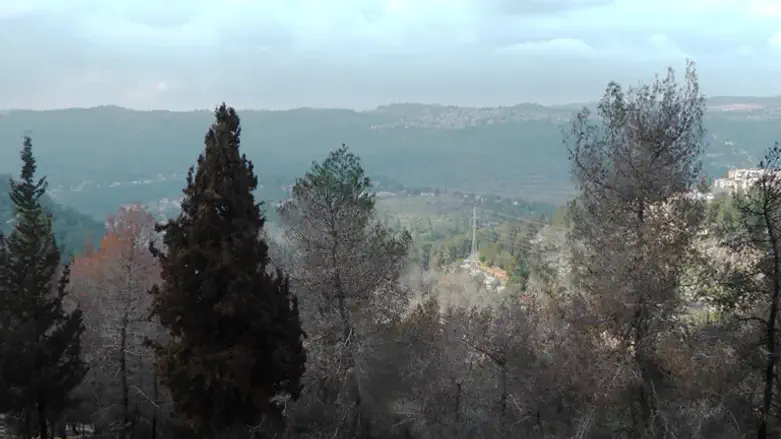
Thousands of residents from Jerusalem’s Har Nof neighborhood and surrounding areas are leading a campaign against a controversial construction plan they say threatens to erase a significant portion of the Jerusalem Forest.
The plan calls for the construction of nine 11-story educational buildings covering a total area of 32,500 square meters, on an 18-dunam plot in the Ibn Danan area, including part of the Jerusalem Forest.
Opponents claim the project would destroy hundreds of trees, including pines, cypresses, carobs, and oaks, and would harm the wildlife inhabiting the area.
A central point of contention is the threat to the Ravida Stream, a key urban nature site that serves as a vital water source and habitat for a diverse array of plants and animals. Opponents warn that the connection between the forest and the stream could be permanently severed if the plan moves forward.
According to a report by the Society for the Protection of Nature in Israel (SPNI), the proposed construction site is home to 352 species of trees and plants, 60 species of birds, 28 species of nesting birds, 8-9 species of mammals, 11 species of reptiles, and 37 species of butterflies.
Speaking to Arutz Sheva - Israel National News, local residents voiced concern over the project’s impact on quality of life: “The plan is expected to add 300 vehicles daily to an area already suffering from severe traffic congestion,” they said.
There are also safety concerns due to the project's proximity to a 400-kilovolt power line. “The buildings are planned to be constructed less than 30 meters from the power line — far below the minimum distance required by safety regulations,” they added.
The municipal court recently ruled that the city must halt construction work in the area until planning procedures are completed. However, residents claim the municipality is continuing to push the project forward.
More than 10,000 residents have signed petitions to stop the plan, supported by environmental organizations including SPNI, KKL-JNF, and “Saving the Jerusalem Hills.”
The Jerusalem Municipality responded: “The claims in this inquiry are inaccurate and completely unfounded. The area in question is part of a legally approved zoning plan, and the facts as presented are incorrect, to say the least.
“This is a public plot designated under an approved zoning plan for the construction of educational and community institutions. The plan being promoted by the Jerusalem Municipality is intended solely for educational facilities and is significantly smaller in scope than claimed, comprising six institutions, not eleven.
“Furthermore, the plan includes access roads, public open spaces, and facilities that will serve the community even outside school hours. The planning process is overseen by a professional agronomist and is under the supervision of the Forest Commissioner, as part of the requirements for environmental supervision and responsibility.
“The municipality is advancing the plan with utmost care and in accordance with all planning regulations, especially given the proximity to an urban nature area. It should be clarified that the site is not within the Jerusalem Forest, as stated in the inquiry.”
